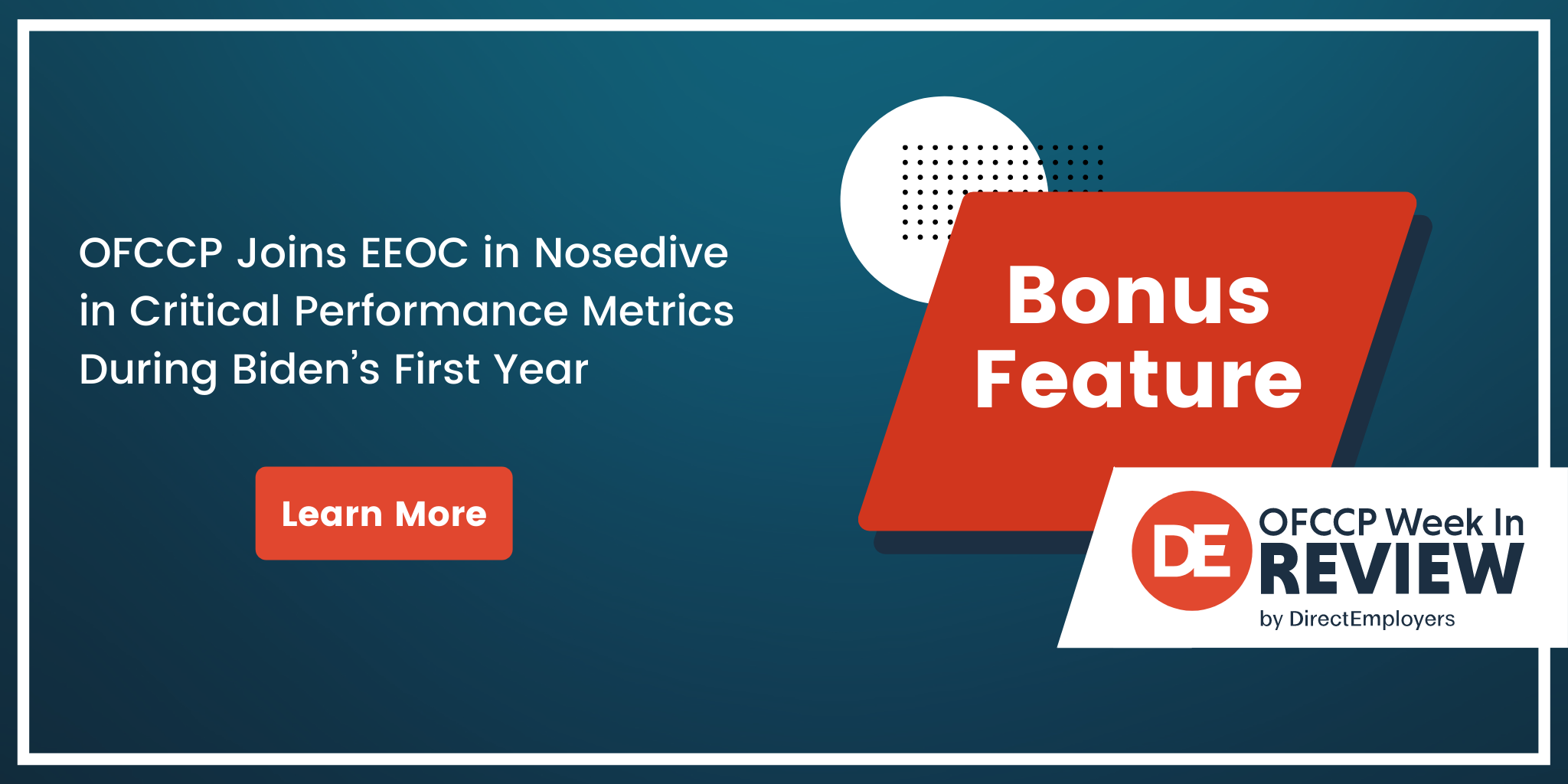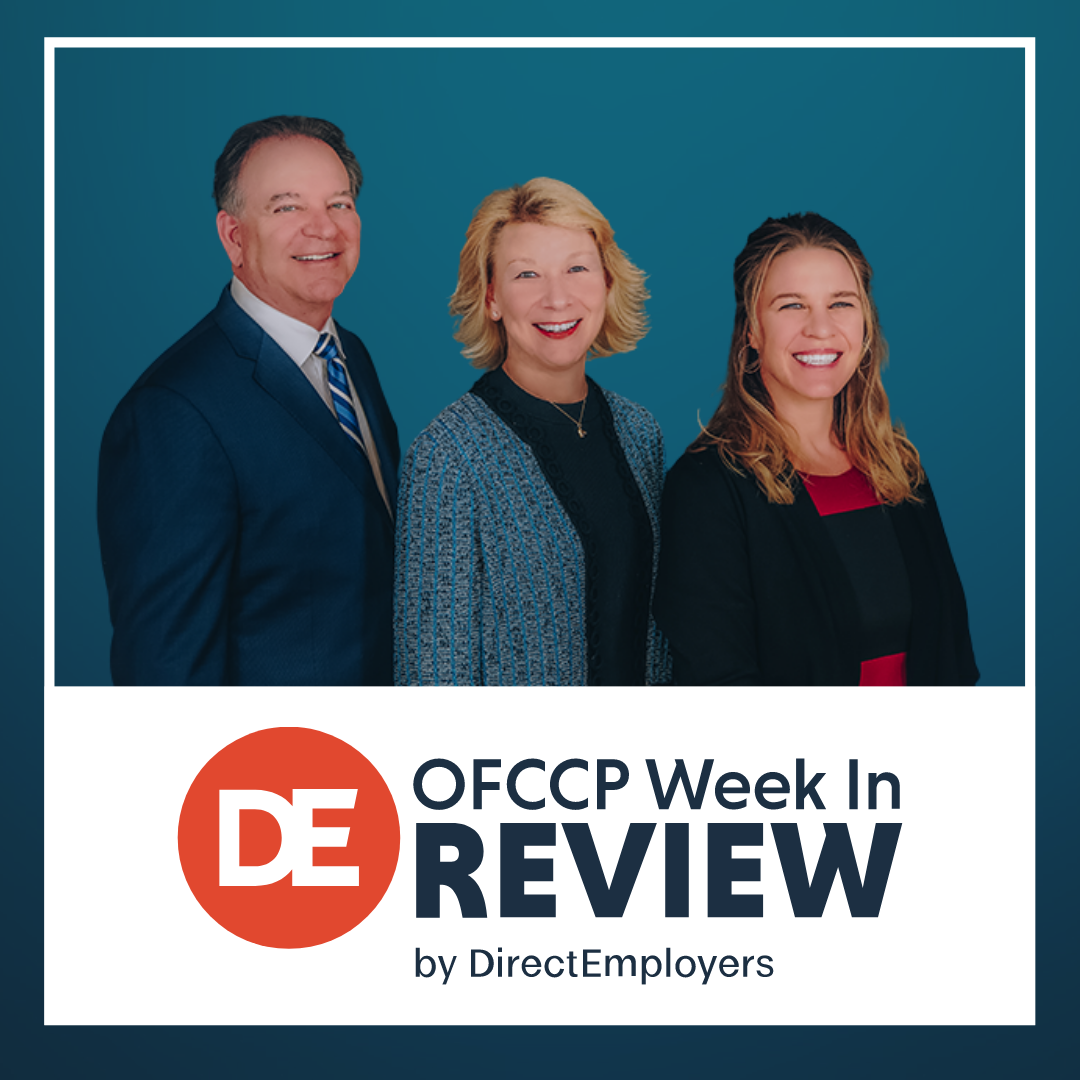
- This Week’s Vaccination Injunction Puzzle at a Glance
- Georgia Court Clarifies Prior Nationwide Injunction of Federal Contractor Vaccine Mandate: Applies Only to the Vaccination Requirement (not other requirements): Biden Administration Yet to Respond
- In Response to Supreme Court Ruling, CMS Issues Final Guidelines Implementing Vaccine Mandate for Healthcare Facilities in 25 States Where the Mandate Was Previously Enjoined
- Biden Administration Takes Its Foot Off The Gas on Employment Civil Rights Enforcement: OFCCP Joins EEOC in Nosedive in Critical Performance Metrics During Biden’s First Year
- Private Employer Vaccination Requirement Fight to Continue as OSHA Withdraws ETS But Maintains Proposed Final Rule for Potential Publication and Implementation
- Interim Rule Issued Amending FAR to Implement Minimum Wage Increase For Federal Contractors
- NLRB Launched E-Filing Service in Español
- U.S. District Court for Arizona Joins the Parade and Enjoins the Federal Contractor/Subcontractor Vaccine Mandate, but Only in Arizona
- EFFECTIVE YESTERDAY! $15 Minimum Wage for Some Federal Contractor Employees
This Week’s Vaccination Injunction Puzzle at a Glance: Big Week of Change
OSHA Emergency Temporary Standard (“ETS”): OSHA Vaccine Mandate Fight Not Done as OSHA Withdraws ETS, But Now Threatens a Proposed Final Rule, Nonetheless
- On Tuesday, January 25th, OSHA withdrew its ETS effective January 26, 2022. HOWEVER, OSHA’s withdrawal of the ETS does not impact OSHAs previously published Proposed Final Rule, which OSHA is still considering following the January 19th deadline for submission of public comment. As such, OSHA appears destined to issue a Final Rule related to vaccine requirements in the workplace, which means another round of litigation will surely ensue (see below)
- The Supreme Court’s ruling does not impact OSHA’s request to authorize for another three years the recordkeeping requirements in the Healthcare ETS it previously issued. Anyone wishing to comment has until January 31, 2022, to submit their comment and recommendation
Medicare/Medicaid Service Provider CMS Vaccine Mandate: New Guidance Related to Compliance for States Previously Subject to Injunction Now Issued
- The Supreme Court lifted the injunctions previously issued, allowing the CMS Interim Final Rule to go into effect. The Court held the Interim Final Rule falls within the authority Congress conferred upon the HHS Secretary
- In response to the Supreme Court’s ruling, on January 14, 2022, and January 22, 2022, CMS issued memos further implementing the Interim Final Rule (see below). The first pertained to the 24 states previously subject to the injunctions issued by the U.S. District Court in Missouri and the 5th Circuit Court of Appeals, and the second related to healthcare facilities in Texas previously subject to the U.S. District Court for the Northern District of Texas’ injunction
Federal Contractor/Subcontractor Vaccine Mandate: Confusion Reigns as Court Issuing Nationwide Injunction Now Clarifies It Only Enjoined Vaccine Requirement; Safer Federal Workforce Task Force Yet to Respond Whether It Will Attempt to Enforce Other Requirements in States Not Subject to Injunction in Other Courts
- As readers are aware, the OMB previously issued guidance noting it would not enforce the implementing requirements of Executive Order 14042 requiring, among other things, a vaccination mandate applicable to federal contractors and subcontractors in response to a nationwide injunction the U.S. District Court for the Southern District of Georgia had issued
- On Wednesday, the U.S. District Court for the Southern District of Georgia issued a new order clarifying its previous nationwide injunction by stating it related only to the vaccination requirement contained in Executive Order 14042 (see below). As such, contractors now wait to see if the Safer Federal Workforce Task Force will now issue new guidance attempting to implement the physical distancing/masking/quarantining requirements in those states not subject to injunctions against Executive Order 14042 issued in other cases
- One new state in which none of the requirements in Executive Order 14042 will apply is Arizona, following the U.S. District Court for Arizona’s decision on January 27th enjoining Executive Order 14042 and “piling on” to all the other courts previously issuing injunctions (see below)
Federal Employee Vaccine Mandate Case: Nationwide Injunction Issued Friday by U.S. District Court for the Southern District of Texas; Biden Executive Order Mandating Vaccination for Federal Employees Stayed
- No update from last week
Head Start Program Vaccination and Masking Rule: Two District Courts Grant Injunctions Preventing Implementation of Vaccine and Masking Rule for Head Start Staff and Students in 25 States
- No update from last week
Friday, January 21, 2022: Georgia Court Clarifies Prior Nationwide Injunction of Federal Contractor Vaccine Mandate: Applies Only to the Vaccination Requirement (not other requirements): Biden Administration Yet to Respond
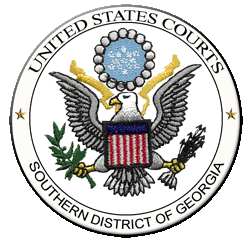
As readers may recall, in response to the prior nationwide injunction order the Office of Management and Budget (“OMB”) issued guidance in which it indicated the government would take no action to enforce any of the implementing requirements of Executive Order 14042. Accordingly, federal contractors and subcontractors have not had to worry about any of the requirements in the implementing Guidance as the Biden Administration appealed the pending court litigation against Executive Order 14042. With this new Order issued on January 21st, federal contractors and subcontractors should be on the lookout for an update from OMB in response to the clarification that the Court did not enjoin the “other obligations” EO 14042 imposes. In other words, OMB may choose to implement in jurisdictions not subject to any other court injunctions the following requirements that the Court clarified it did NOT enjoin nationwide:
- Compliance with published CDC guidance on masking and physical distancing in the workplace;
- Weekly review of the CDC COVID-19 Data Tracker County View website for community transmission information in the workplace’s geographic location;
- Revision of workplace safety protocols commiserate with transmission levels in the community;
- Designation of individual(s) in charge of coordinating implementation and compliance with the Guidance and workplace safety protocols; and
- Implementation of a Compliance Policy/Plan to the Guidance.
While the Biden Administration has yet to issue any updated guidelines with this new Court clarification, federal contractors and subcontractors should be aware that such a possibility exists (and is surely coming). Oral argument on the propriety of the use of a nationwide injunction is scheduled before the 11th Circuit Court of Appeals in April, with a decision expected shortly thereafter. Federal contractors and subcontractors in 15 states subject to an injunction of Executive Order 14042 in other cases (Florida, Kentucky, Ohio, Tennessee, Missouri, Nebraska, Alaska, Arkansas, Iowa, Montana, New Hampshire, North Dakota, South Dakota, Wyoming, and Arizona) will not be subject to any change in OMB’s guidelines, given those other injunctions appear to have enjoined ALL requirements Executive Order 14042 seeks to impose.
Saturday, January 22, 2022: In Response to Supreme Court Ruling, CMS Issues Final Guidelines Implementing Vaccine Mandate for Healthcare Facilities in 25 States Where the Mandate Was Previously Enjoined

Thus, Medicare- and Medicaid-certified healthcare providers and suppliers in Alabama, Alaska, Arizona, Arkansas, Georgia, Idaho, Indiana, Iowa, Kansas, Kentucky, Louisiana, Mississippi, Missouri, Montana, Nebraska, New Hampshire, North Dakota, Ohio, Oklahoma, South Carolina, South Dakota, Utah, West Virginia, and Wyoming must comply with 30/60/90-day deadlines for staff vaccination working off the January 14th issuance date as follows:
- Within 30 days from January 14, 2022, for a facility to be fully compliant it must demonstrate that:
- It has developed and implemented policies and procedures to ensure 100% vaccination of covered employees against COVID-19; and
- 100% of the staff must receive at least one dose of a COVID-19 vaccine, or have a pending request for, or have been granted a qualifying exemption.
Should the facility have less than 100% compliance, the CMS will issue a notice of non-compliance. A facility that is above 80% vaccination but has a plan to achieve 100% vaccination within 60 days would not be subject to an enforcement action. Otherwise, the facility could be subject to a variety of enforcement actions, such as plans of correction, civil monetary penalties, denial of Medicare or Medicaid payments, and/or termination of contracts.
- Within 60 days from January 14, 2022, for a facility to be fully compliant it must demonstrate that:
- It has developed and implemented policies and procedures to ensure 100% vaccination against COVID-19; and
- 100% of the staff must receive at least one dose of a COVID-19 vaccine or must have obtained a qualifying exemption.
Should the facility have less than 100% compliance, the CMS will issue a notice of non-compliance. A facility that is above a 90% vaccination rate and has a plan to achieve 100% vaccination within 30 days would not be subject to an enforcement action. Otherwise, the facility could be subject to enforcement actions, such as plans of correction, civil monetary penalties, denial of Medicare or Medicaid payment, or termination of contracts.
- Within 90 days and thereafter from January 14, 2022, facilities failing to maintain compliance with the 100% standard may be subject to an enforcement action.
Medicare- and Medicaid-certified providers and suppliers in Texas must comply with the same requirements, but only within 30/60/90-days from January 20, 2022.
With the issuance of these two guidelines, CMS has now provided guidance and instruction to all facilities in all 50 states for compliance with the Interim Final Rule requiring vaccination of staff.
Monday, January 24, 2022: Biden Administration Takes Its Foot Off The Gas on Employment Civil Rights Enforcement: OFCCP Joins EEOC in Nosedive in Critical Performance Metrics During Biden’s First Year
What Federal Contractors May Expect For The Remainder of FY 2022
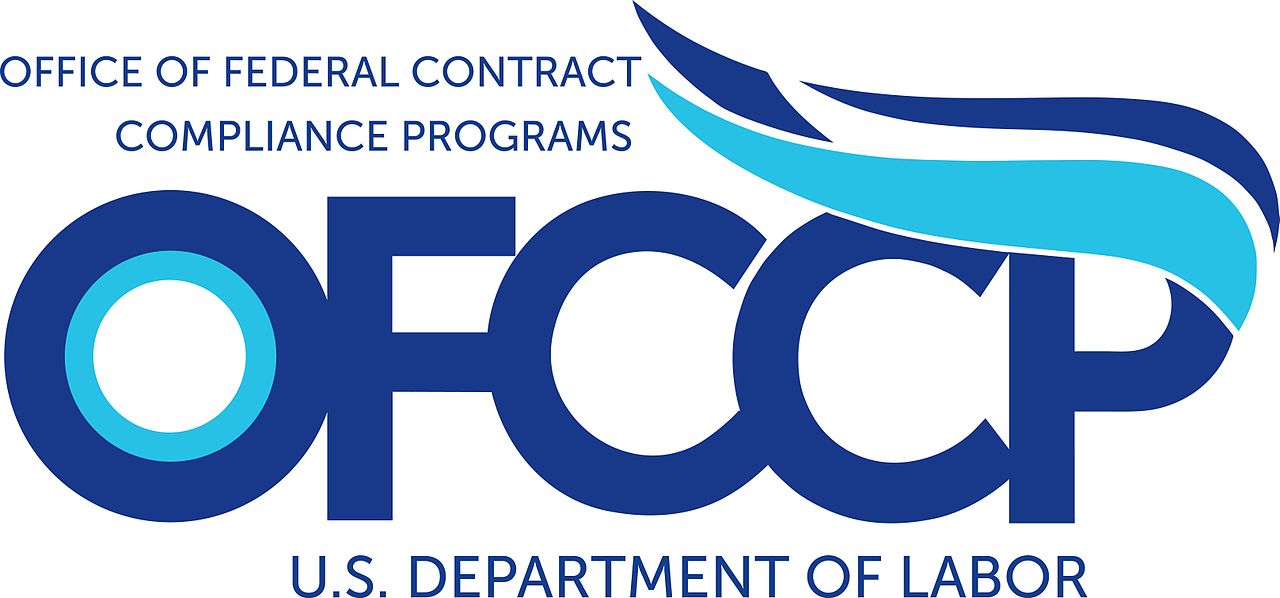
The one bright spot in OFCCP’s enforcement statistics are individual Complaints, which the Carter Administration and succeeding OFCCP Administrations had tried to escape. OFCCP’s policy for over 30 years has been to shunt individual Complaints wherever possible to the EEOC to keep OFCCP focused on systemic discrimination investigations and prosecutions and to not get bogged down in individual claims.
In FY 2021, OFCCP investigated 114 Complaints–up from 83 Complaints in FY 2020–tying the Trump Administration’s FY 2018 Complaint investigation performance. And, in the first quarter of FY 2022 (October, November and December 2021), OFCCP flexed up to investigating 32 Complaints which annualizes to approximately 128 Complaint investigations for FY 2022. Backpay recoveries in that first quarter of FY 2022 inched up to $18,709 (annualizing to almost $80,000 for the full FY 2022 year, almost 20% more than FY 2021’s $57,746 (Fifty-Seven Thousand, Seven Hundred Forty-Six Dollars) but nowhere near the Trump Administration’s $744,792 backpay collections for Complaints it investigated and resolved in FY 2018. Nonetheless, the numbers are so small, it is difficult to take solace in the year-over-year improvement in one very small metric of minor significance to OFCCP’s employment systems mission.
Read further for the broader picture depicting an agency which is obviously struggling to get its rhythm and is hitting new lows of performance in the fifty+ year history of the agency…
Tuesday, January 25, 2022: Private Employer Vaccination Requirement Fight to Continue as OSHA Withdraws ETS But Maintains Proposed Final Rule for Potential Publication and Implementation
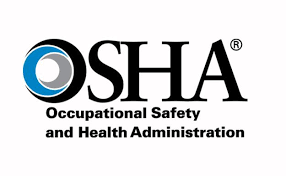
However, private employers believing they are now free from government-mandated vaccination requirements are moving too fast, too soon. In an unsurprising ancillary move given the angry tenor of Secretary of Labor Marty Walsh’s statement in response to the Supreme Court’s decision, OSHA affirmed in its ETS withdrawal announcement that it was keeping in place its proposed Final Rule under section 6(c)(3) of the Occupational Safety and Health Act (“OSH Act”). Echoing Secretary Walsh’s prior combative stance, OSHA indicated it was “prioritizing its resources to focus on finalizing a permanent COVID-19 Healthcare Standard.”
As readers may recall, we previously discussed how the language in the ETS was both an “Interim Final Rule” and a proposed permanent rule at the time of its publication. Public comments to the proposed Final Rule were due January 19th. By moving forward with the proposed Final Rule, OSHA seeks to continue in its efforts to impose vaccination requirements on America’s workforce. Only now, should OSHA implement a vaccination mandate as a Final Rule, that rule could apply to employers with 10 or more employees commensurate with OSHA’s jurisdiction. Thus, any Final Rule could actually exceed the reach of the prior ETS.
It remains unclear what new or revised language OSHA could adopt in any Final Rule that would not run afoul of the Supreme Court’s prior holding that imposition of a public health vaccination requirement is beyond the scope of OSHA’s authority. Regardless, it appears OSHA does not perceive that concern as a limitation on its efforts to now move forward with a Final Rule.
For now, employers (including those not previously subject to the ETS) should hold off on any assumption that they are free from vaccination mandates. Instead, employers should strap in for yet another round of drawn-out media cacophony and HR confusion once OSHA publishes its Final Rule for dissection and guaranteed litigation.
Wednesday, January 26, 2022: Interim Rule Issued Amending FAR to Implement Minimum Wage Increase For Federal Contractors
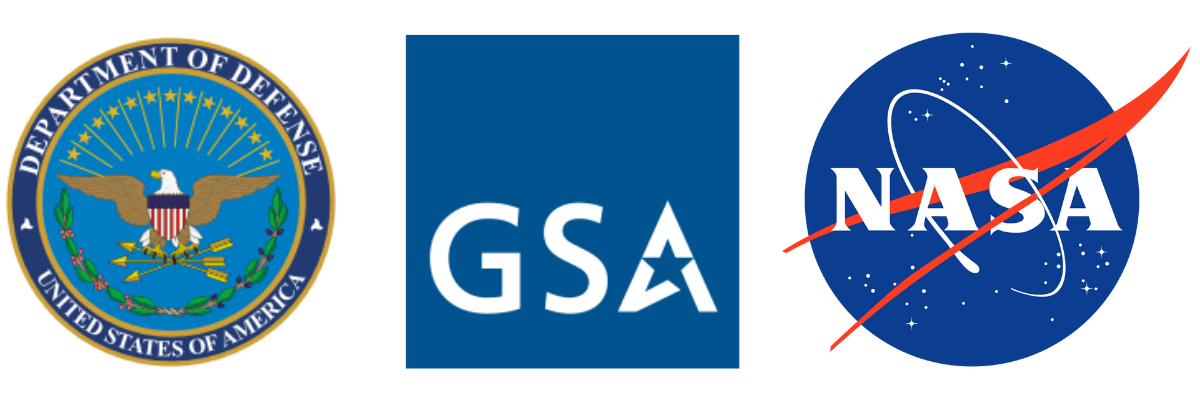
Applicability
For procurement contracts subject to the FAR and E.O. 14026 the applicability is as follows:
- “To solicitations issued on or after January 30, 2022, and their resulting contracts.
- To new contracts awarded without a prior solicitation (e.g., a purchase order under part 13), on or after January 30, 2022.
- To new contracts with a prior solicitation awarded on or after March 31, 2022.
- To existing contracts, including procurements for recreational services, when extending, renewing, or exercising an option on the existing contract on or after the effective date of the rule. Contracting officers shall incorporate the amended clause in this rule at 52.222-55, Minimum Wages for Contractor Workers Under Executive Order 14026, in the existing contracts through bilateral modifications. In such a circumstance, if the contracting officer is unable to incorporate the clause in an existing contract through bilateral modification, then the contracting officer shall decline to extend, renew, or exercise the option on the existing contract.
- In accordance with FAR 1.108(d), contracting officers are strongly encouraged to include the amended clause in other contracts awarded before March 31, 2022, with appropriate consideration.” (emphasis added)
What Is Set To Change?
Due to the similarities of E.O. 13658 (the 2015 Obama Administration minimum wage Executive Order (see side-by-side comparison) there are limited changes in store. Changes are grouped into 11 categories (A-K), summarized here with direct links hyperlinked:
- References to the E.O. and DOL Regulations – updating citations
- Increasing the minimum wage – revising the numbers
- New requirements for tipped workers – for employees in an occupation in which they customarily receive more than $30/month in tips
- Dates – revising per the E.O.
- Definition of “worker” – Clarifying to explain what it means for a worker to perform “on a contract” and to perform “in connection with a contract.” This clarification is consistent with the revised definition of “worker” in DOL’s Final Rule implementing E.O. 14026 and the definition of “employee” in FAR subpart 22.21, which implements E.O. 13706, Establishing Paid Sick Leave for Federal Contractors.
- Definition of “United States” – revising to mirror E.O. 14026 and include: Puerto Rico, the Northern Mariana Islands, American Samoa, Guam, the U.S. Virgin Islands, Johnston Island, Wake Island, and the outer Continental Shelf.
- Revocation of recreational services exemption – revising to mirror E.O. 14026
- New title for the clause – clarifying that although using the same clause number, a new EO is in place
- Conforming changes – to mirror existing regulations
- Option exercise – DOL’s Final Rule implementing E.O. 14026 included a definition for “new contract” at 29 CFR 23.20 (not yet published, but the definition was adopted as proposed in the NPRM)The FAR Rule did not adopt this definition.
“However, when FAR rules apply to existing contracts, application is addressed in the Effective Date/Applicability section of the preamble, not in the Code of Federal Regulations. Treatment of bilateral modifications to existing contracts is addressed in the Applicability section at the beginning of this preamble. As a result, in the Effective Date/Applicability section of the preamble, contracting officers are required to incorporate the clause 52.222-55 into existing contracts during option exercise via a bilateral modification. If the contracting officer is unable to incorporate the clause 52.222-55 in an existing contract during option exercise via a bilateral modification, then the contracting officer shall decline to extend, renew, or exercise the option on the existing contract.” - Exclusion from 29 CFR part 23 Existing contracts will continue at the old pay rates until extended or renewed. However, President Biden has encouraged federal agency contract officers to “jawbone” contractors who only recently signed contracts into “voluntarily” modifying their relatively new contract to adopt the new higher minimum wage obligation. Specifically, although not yet published, 29 CFR part 23 will codify section 9(b) of the EO. That section provides the exception to contracts that result from a solicitation issued prior to January 30, 2022, and that are entered into on or between January 30, 2022, and March 30, 2022. If such a contract is subsequently extended or renewed, or an option is subsequently exercised under that contract, the Executive Order and part 23 would apply to that extension, renewal, or option
Comments
Interested parties may submit written comments to the Regulatory Secretariat Division at the address provided on or before March 28, 2022, to be considered in the formation of the Final Rule.
How We Got Here
Get up to speed with our story from November 2021, “New $15.00 Minimum Wage Rule for SOME Employees of Federal Contractors by January 30, 2022, is a Complex Web of Broadened Inclusions and Technical Exclusions.” Subsequently, the Wage and Hour Division stepped in with some assistance. Gather that intel in our January 2022 story, “Clarification on The New Minimum Wage For Some Federal Contractors.”
Wednesday, January 26, 2022: NLRB Launched E-Filing Service in Español
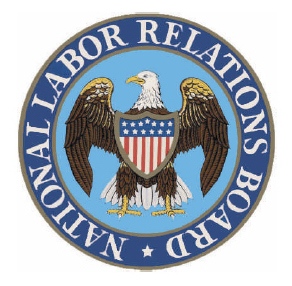
As part of the NLRB’s increased efforts to reach Spanish-speakers, the Board created Spanish Twitter accounts for the NLRB and the NLRB General Counsel, and has started posting news releases in Spanish.
“I want Spanish-speaking workers to know that we are here to protect and defend their rights,” said General Counsel Jennifer Abruzzo. “The Spanish e-filing system is a powerful step towards our goal of robust education, protection, and enforcement of workers’ rights under the National Labor Relations Act.”
In The Know – Unfair Labor Practice
The NLRB receives about 20,000 to 30,000 charges per year from employees, unions and employers covering a range of unfair labor practices described in Section 8 of the National Labor Relations Act. An affected party or member of the public has six months from the occurrence of an alleged violation to file an unfair labor practice. The NLRB has Information Officers at all Regional Offices available to assist a party or member of the public, if needed. The Regional Office where the charge is filed will investigate the charge and, if found meritorious, will issue a complaint, absent settlement.
In The Know – Union Election Process
To start an election process, a petition and associated documents can be e-filed with the nearest NLRB Regional Office showing support for the petition from at least 30% of employees in the group seeking representation. NLRB agents will then investigate to make sure the Board has jurisdiction, there is sufficient interest, and there are no existing labor contracts or recent elections that would bar an election.
Thursday, January 27, 2022: U.S. District Court for Arizona Joins the Parade and Enjoins the Federal Contractor/Subcontractor Vaccine Mandate, but Only in Arizona
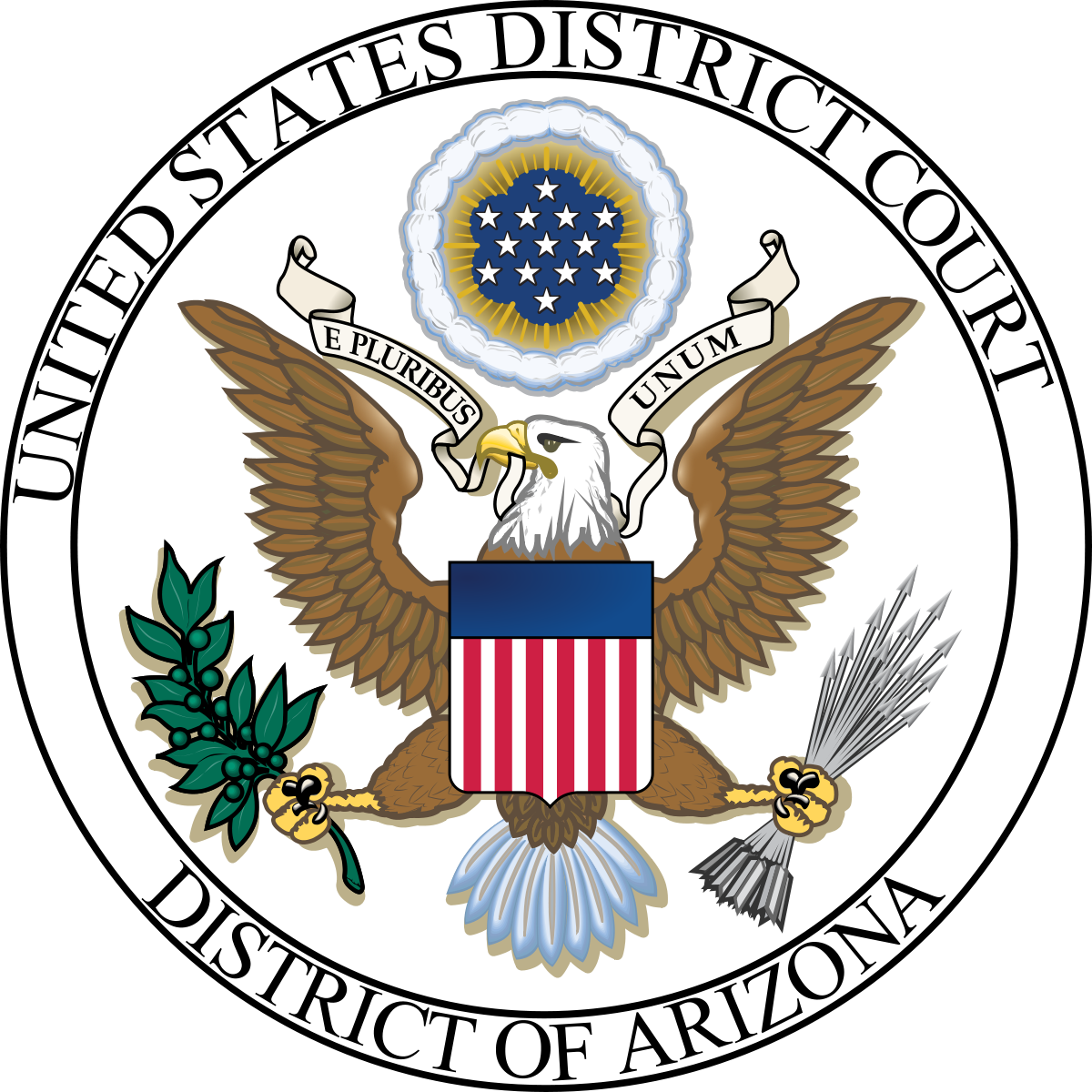
Judge Liburdi’s ruling relies upon the same arguments expressed in other opinions enjoining the Biden Administration’s various vaccine mandates. First, Judge Liburdi noted that such unfettered expansion of presidential authority to public health matters is beyond the authority laid out by Congress in federal procurement laws. Judge Liburdi found that expanding the President’s authority under federal procurement laws to mandate vaccination merely because work on federal contracts could be hindered could result in the analogous situation of justifying regulation of junk food intake by federal contractor employees.
Second, Judge Liburdi relied on the argument that government police powers related to regulating the public’s health rests with the state. Judge Liburdi relied on that argument to note that in Arizona, the state legislature has enacted laws prohibiting state and local governments from enacting vaccine mandates. While he acknowledged the federal government may have concurrent power to require vaccination, the power to order that result rests with Congress as the elected legislative body as opposed to a mere presidential declaration.
Finally, Judge Liburdi noted that the state of Arizona had standing to bring its claim given that specific state entities would suffer federal contracting revenue losses, such as state universities and other state agencies with federal contracts. Judge Liburdi did reject the state’s argument that individuals had a right under federal law to reject vaccination, noting that this argument misinterprets the Emergency Use Authorization language in the Food and Drug Act, which requires only that individuals are provided sufficient information about the vaccine.
Judge Liburdi’s ruling was not a complete defeat for the Biden Administration, however. For example, Judge Liburdi refused to enjoin the Administration’s vaccine mandate for federal employees, noting the state lacked standing to sue since neither the state nor its employees were subject to Executive Order 14043. Even if the state had standing, vaccine mandates as to federal employees fell within the “exercise of the president’s considerable constitutional authority to regulate the internal affairs of the executive branch.” This aligns with most other courts and their holding as to the Biden Administration’s federal employee vaccine mandate (other than the Feds for Medical Freedom, et al. v. Biden, et al. decision we discussed last week).
The practical effect of Judge Liburdi’s decision is that it adds nothing given the OMB’s current guidance stopping implementation of Executive Order 14042. However, given last week’s clarification as to the extent of the nationwide injunction issued in Georgia, et al. v. Biden, et al. discussed above, the decision does provide future protection for Arizona employers. Specifically, should OMB revise its guidance to implement all non-vaccination requirements contained in Executive Order 14042, Judge Liburdi’s decision would attach and would stop mandated compliance by Arizona employers until such time as the 11th Circuit rules on the Administration’s pending appeal in Georgia, et al. v. Biden, et al.
Sunday, January 30, 2022: EFFECTIVE YESTERDAY! $15 Minimum Wage for Some Federal Contractor Employees
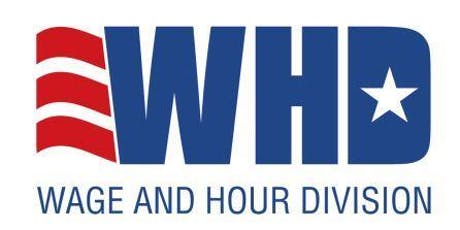
THIS COLUMN IS MEANT TO ASSIST IN A GENERAL UNDERSTANDING OF THE CURRENT LAW AND PRACTICE RELATING TO OFCCP. IT IS NOT TO BE REGARDED AS LEGAL ADVICE. COMPANIES OR INDIVIDUALS WITH PARTICULAR QUESTIONS SHOULD SEEK ADVICE OF COUNSEL.
SUBSCRIBE.
Compliance Alerts
Compliance Tips
Week In Review (WIR)
Subscribe to receive alerts, news and updates on all things related to OFCCP compliance as it applies to federal contractors.
OFCCP Compliance Text Alerts
Get OFCCP compliance alerts on your cell phone. Text the word compliance to 55678 and confirm your subscription. Provider message and data rates may apply.

